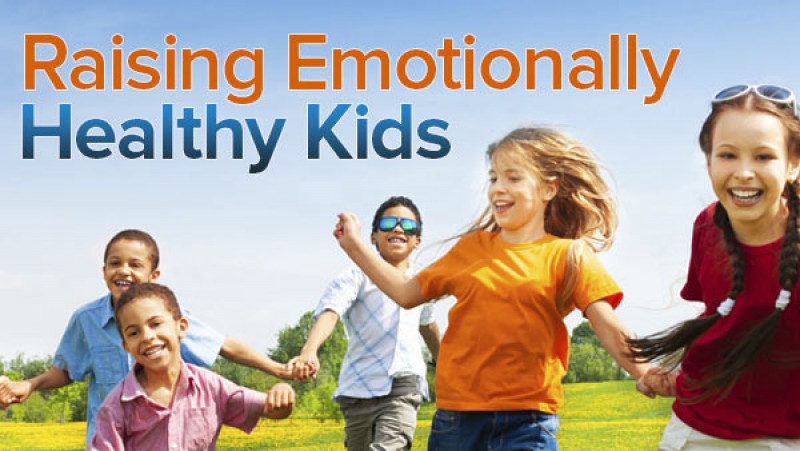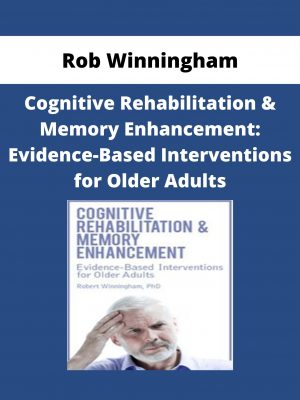How to Raise Emotionally and Socially Healthy Kids
$170 Original price was: $170.$40Current price is: $40.
Shopping Instructions:
- DISCOUNT 15% : SHOP15
- Product Delivery: Within 1 – 12 hours after purchase.
In the second half of the course, you’ll focus on social intelligence and the myriad challenges children face in making friends and maintaining friendships File size: 5.48 GB
How to Raise Emotionally and Socially Healthy Kids
We think of childhood as a carefree time, but child-size worries can loom large—for both parents and kids. From the tantrums of toddlerhood and the cliques of middle school to the online social world of teens, every child struggles at some point with anger, hurt feelings, and difficult friendship issues.
Hide Full Description
For parents, figuring out how to effectively support children’s emotional and social development can be challenging. Should I give my two-year-old timeouts? How can I get my children to be kinder to each other? Is it OK for my middle-schooler to use Facebook?
How parents answer these and other questions can help children learn to cope with their feelings and build strong friendships. The skills needed to successfully navigate the classroom, the playground, sports teams, and family relationships are precisely the skills your child will need throughout life, both personally and professionally.
Whether you want to help your child learn how to manage anger, make new friends, resolve conflicts, or gain confidence, Raising Emotionally and Socially Healthy Kids provides you with practical, research-based strategies you can start using today.
Across 12 fascinating and insightful lectures, you’ll gain access to the same practical advice and actionable plans that Dr. Eileen Kennedy-Moore—an author and in-demand psychologist who serves on the advisory board for Parents magazine—shares with clients in her Princeton, New Jersey, practice. Drawing from the doctor’s extensive clinical experience—as well as her personal experience as a mother of four—you’ll gain a deeper understanding of your child’s development and how to compassionately address common stumbling blocks at every stage.
Whether you’re a new parent looking for a roadmap as you begin your journey; an experienced mother or father searching for advice on a thorny problem; or a grandparent, teacher, or childcare professional looking to educate yourself further; this course delivers the authoritative advice anyone can use.
You’ll discover
techniques to inspire cooperation;
ideas for instilling a sense of empathy;
ways to deal with back-talk and aggression;
strategies for helping kids make and keep friends; and
methods that help children cope with and conquer anxiety.
Even if your child has yet to encounter these particular problems, Raising Emotionally and Socially Healthy Kids will ensure that you’re better equipped to deal with a wide range of common childhood stumbling blocks.
Troubleshooting from Toddlers to Teens: Emotional Well- Being at Every Stage
In the first six lectures, you’ll focus on emotional intelligence and the pivotal role parents can play in helping children understand and cope with their feelings. You’ll come to see why emotion regulation can be difficult for young people, and gain simple and easy to implement strategies for managing the intense emotions and meltdowns of early childhood, as well as the everyday feelings of kids of all ages.
You’ll also find expert guidance on breaking the cycle of misbehavior and punishment in favor of more constructive ways of handling anger, from preventing outbursts before they strike to leading your child in collaborative problem solving. You may be surprised to learn that punishment can actually exacerbate aggression, and—contrary to popular belief—the punishment does not have to fit the crime.
These research-based strategies can be life-changing, whether you’re struggling with a Terrible Two, elementary-school sibling squabbles, or the sometimes dramatic “tantrums” of teens.
Get immediately download How to Raise Emotionally and Socially Healthy Kids
Help Your Child Make and Keep Friends
In the second half of the course, you’ll focus on social intelligence and the myriad challenges children face in making friends and maintaining friendships, plus practical ways you can guide them through the process. Dr. Kennedy-Moore says it’s impossible to overstate how important friendship is for children, citing research that shows when kids have even one close, reciprocal friend, they
have higher self-esteem;
feel less lonely;
hold more positive attitudes toward school;
cope better with stressful events; and
are less likely to be bullied.
From the self-centered friendships of preschoolers to the mature relationships of adolescents, you’ll learn how children’s understanding of what it means to be a friend evolves over time. You’ll take a serious look at play, which is crucial to forming and maintaining friendships, and explore how you can support your child in
getting along with others;
being a good sport;
handling conflicts;
dealing with bullying or putting a stop to their own bullying behavior; and
coping with gossip, cliques, and other aspects of peer group culture.
In the final lecture, you’ll delve into the highly relevant and uniquely challenging matter of friendship in the digital age, with a candid discussion of video game playing and the relatively new but troubling phenomena of cyberbullying and “Facebook depression.”
A Sensible, Practical, and Kind Approach
Dr. Kennedy-Moore’s expert knowledge and focus on practicality, coupled with her warmth and gentle humor make this course a delight. These fun and fascinating videos will give you the solution-oriented approach you need to help address your most pressing parenting concerns. You’ll learn how to help your child develop both competence and confidence in navigating the social world.
As a parent, you can’t make friends for your children, nor can you prevent them from ever feeling hurt or upset. But with Raising Emotionally and Socially Healthy Kids, you can support them in learning how to solve problems, cope with feelings, and build satisfying relationships.
Related products
HEALTH & MEDICAL
Dr Heidi M Crocker – Yoga Alignment | Speaker: Heidi Crocker EdD, DC
HEALTH & MEDICAL
KettleWorX – 8 Week Rapid Evolution Advanced Set with Alex Isaly
HEALTH & MEDICAL
Bernadette Giorgi – Attitude Ballet & Pilates Fusion – Just B Method
HEALTH & MEDICAL
HEALTH & MEDICAL
HEALTH & MEDICAL
HEALTH & MEDICAL
Gaia—Creating-High-Voltage-Health-with-Glenn-Streeter-Open-Minds












